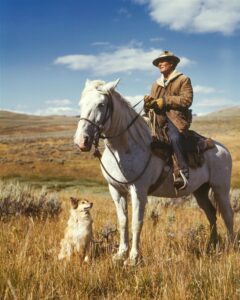Have you ever heard someone say they are “working like a dog?” This common phrase is used to describe someone who is working hard, tirelessly and with great effort. But have you ever wondered where this phrase comes from and why it is associated with dogs? In this blog, we will explore the history and current usage of the phrase “work like a dog”.

The phrase “work like a dog” is thought to have originated in the early 1900s in the United States. At this time, dogs were commonly used for manual labor such as herding, hunting, and guarding. Dogs were bred to work hard and were often treated as valuable members of the workforce. However, despite their importance, dogs were often overworked and expected to work long hours in difficult conditions. The phrase may have also originated from the fact that dogs were known to be fiercely loyal and dedicated to their work, which humans admired.
For example, farmers used dogs to help with tasks such as herding sheep and cattle. The dogs would tirelessly work to ensure the animals stayed in line and did not stray from the herd. Another example is hunting dogs, which would tirelessly track and retrieve game for their owners, even in difficult terrain.
It is believed that the phrase “work like a dog” originated from observing the tireless work ethic of these hardworking dogs. They would work tirelessly, often without breaks or rest, in order to complete their tasks. This strong work ethic was something that many humans admired and aspired to replicate in their own work. The phrase became popularized in the 1920s and has been used ever since to describe people who work hard.
For example, a student may “work like a dog” to complete their studies and achieve their academic goals. Similarly, an entrepreneur may “work like a dog” to build their business from the ground up, dedicating long hours and great effort to make it a success.
Today, the phrase “work like a dog” is still commonly used to describe someone who is working tirelessly and with great effort. However, the meaning of the phrase has evolved to encompass a broader range of work ethics, and can now be used to describe anyone who is working hard, regardless of their profession. The phrase has become a symbol of the value we place on hard work and dedication.
For example, a nurse may “work like a dog” to care for their patients, tending to their needs with compassion and skill. Similarly, a construction worker may “work like a dog” to complete a project on time and to the highest standards, despite challenging conditions.

Despite the evolution of the phrase, the image of the hardworking dog remains at its core. Dogs are still valued for their work ethic and their ability to complete difficult tasks. They continue to be trained for a variety of jobs such as search and rescue, therapy, and law enforcement. In many ways, dogs serve as an inspiration for humans to work harder and strive for greatness.
For example, a therapy dog may “work like a dog” to comfort and support people in need, helping them to overcome their challenges. Similarly, a police dog may “work like a dog” to apprehend criminals and keep communities safe.
In conclusion, the phrase “work like a dog” has a rich history and has evolved to become a common expression in the English language. Its origins can be traced back to the hardworking dogs of the early 1900s, and its continued usage reflects our admiration for their tireless work ethic. Whether you are a dog lover or not, there is no denying the importance of these hardworking animals and the impact they have had on our language and culture.
